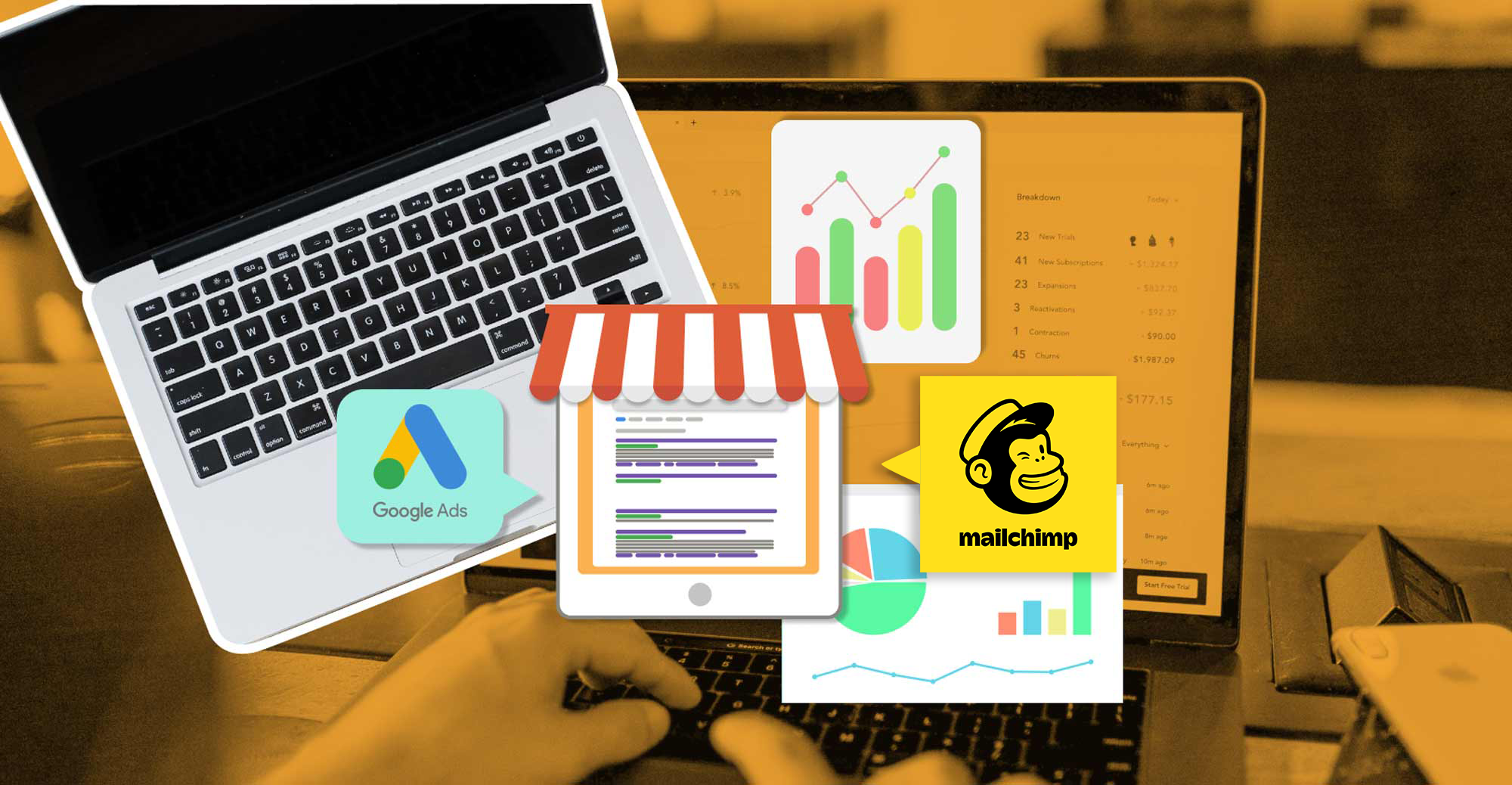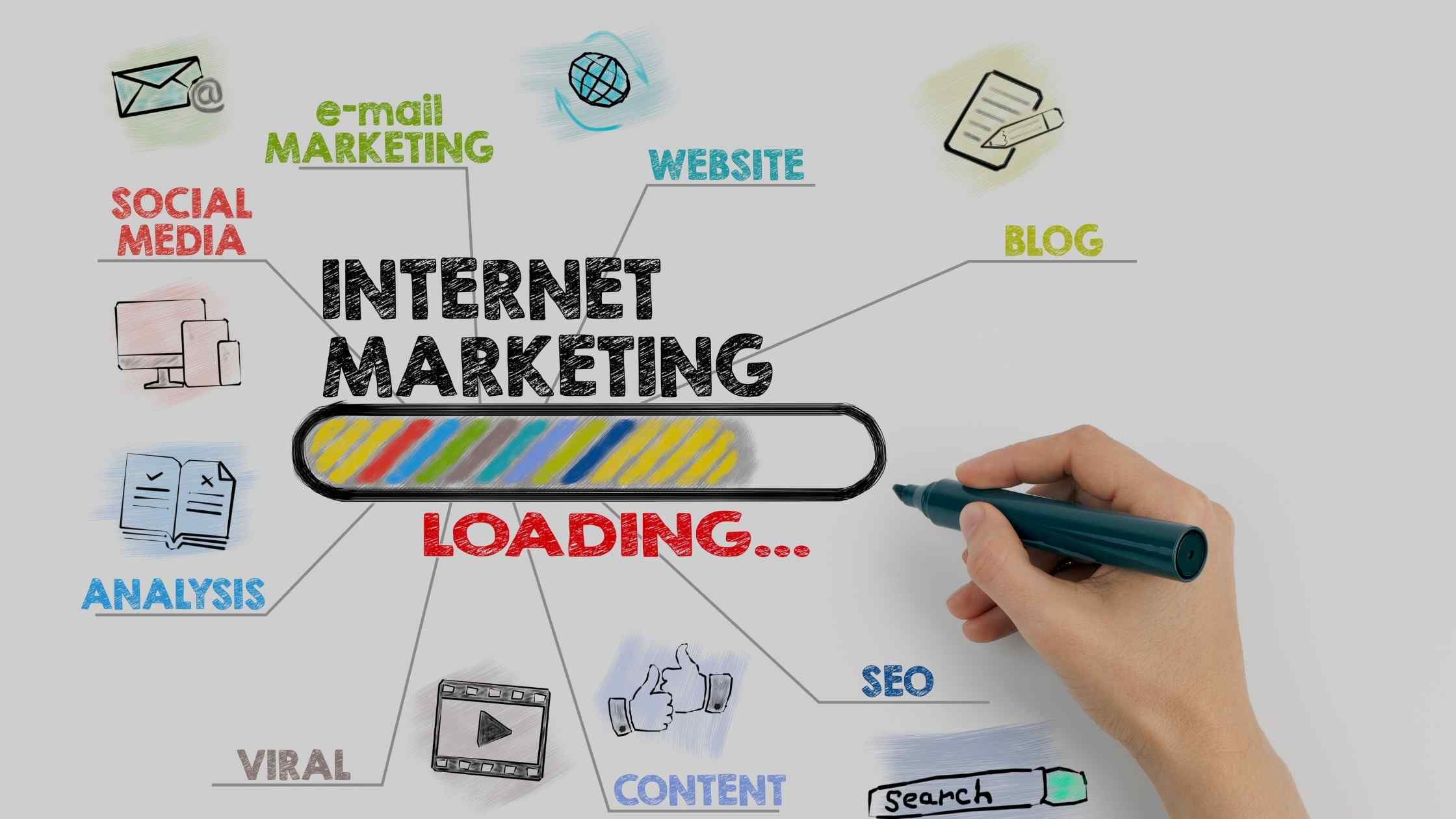Internet Marketing for Small Biz
Internet Marketing for Small Biz in a marketplace overflowing with titans, small businesses might feel like minnows in an ocean of sharks. But in the digital realm, agility trumps size. When properly executed, internet marketing small business strategies can vault an underdog into the limelight, drawing clicks, conversions, and customer loyalty.

The Digital Playground: Leveling the Field
The web doesn’t care if your office is a corner café or a skyscraper suite. Online, what matters is visibility, voice, and value. Through smart, strategic internet marketing small business tactics, even modest enterprises can punch far above their weight class.
This is the golden age of access. Tools that once cost thousands are now freemium. Social media ads, SEO platforms, automated email systems, and AI copy tools are all at your fingertips. The question isn’t what’s available. It’s how cleverly you use them.
Carving a Digital Identity That Clicks
Before spending a dime on ads or email blasts, small businesses need to shape their online identity. Your website isn’t just a digital brochure. It’s your handshake, pitch, and follow-up all in one.
Create a site that reflects your brand’s ethos — modern, nimble, and deeply human. Invest in intuitive UX design, persuasive copywriting, and rich media that capture attention in seconds. The average digital attention span is now less than a goldfish’s. You’ve got milliseconds to impress.
Internet marketing small business campaigns often stall at this first step. A pixelated logo, stock-photo overload, or cluttered navigation bar can tank trust instantly. Polish your digital storefront as obsessively as you would a physical one.
SEO: The Long Game That Pays Off
Search Engine Optimization isn’t sexy. It’s slow, methodical, and infuriatingly algorithmic. But for small businesses, it’s a compounding asset that keeps on giving.
Keyword research is your compass. It reveals what your audience actually wants. Integrate these terms — naturally — into your web pages, blogs, and even image alt-text. But go beyond the basics. Optimize for local search if your customers are nearby. Include structured data so Google understands your offerings.
Consistency is key. Blogs, product descriptions, and FAQs should be regularly updated. Not just for Google’s bots, but to build trust and authority with your audience. A robust internet marketing small business strategy always includes long-tail keyword planning. Think “eco-friendly dog toys Brooklyn” rather than just “dog toys.”
Social Media: The Power of Micro Moments
Social platforms are no longer optional. They’re where buying decisions begin, often subconsciously. That Instagram Reel? A micro-moment of influence. That TikTok review? A soft pitch that sticks.
Pick two platforms. No more. Don’t spread yourself thin. Choose where your audience naturally hangs out and create content that feels native, not corporate.
Stories, behind-the-scenes peeks, quirky polls, and candid videos humanize your brand. Don’t chase virality. Aim for consistency and connection. When customers feel they “know” you, they’ll buy from you — even if the competitor is cheaper.
Always loop back to value. Share tips, tricks, mini-guides, and UGC (user-generated content). These organic touchpoints make up the heart of internet marketing small business campaigns on social platforms.
Email: Still the Unsung Hero
Think email is dead? Think again. It remains one of the highest ROI channels in digital marketing. Every email address is a potential repeat customer, advocate, or feedback provider.
Segment your list. A spray-and-pray approach leads to unsubscribes. Craft welcome sequences, abandoned cart reminders, and birthday offers. Make them personal, witty, and rich with CTAs that feel helpful, not pushy.
Use storytelling. Instead of “Buy this now,” try “Here’s how Anna saved 40% in 4 days.” Narrative sticks. Stats show that emails with a strong narrative arc see click-through rates increase significantly.
An internet marketing small business blueprint that ignores email is like building a house with no back door. Don’t underestimate the power of the inbox.
Paid Ads: The Smart Spend
Organic growth is glorious. But sometimes, you need a growth spurt.
That’s where paid ads come in. Google Ads, Meta Ads, Pinterest Promoted Pins — they all offer micro-targeting that’s eerily precise. You can reach people based on age, location, interests, recent purchases, and even life events like getting married or moving cities.
But don’t just throw dollars at clicks. Start with A/B testing. Try multiple headlines, images, and CTAs. See what sticks. Then double down.
For small businesses, retargeting is gold. These are warm leads — people who visited your site but didn’t convert. A gentle nudge via a carousel ad or a limited-time offer can turn indecision into a sale.
A savvy internet marketing small business strategy involves both offense (cold audience reach) and defense (retargeting and nurturing). Think chess, not checkers.
Influencer Marketing: Not Just for Big Brands
You don’t need to hire a Kardashian. Micro-influencers — those with 1k to 100k followers — often have hyper-engaged audiences. Their recommendations feel genuine, not staged.
Reach out to local influencers or niche creators. Offer value: a free product, an affiliate commission, or a spotlight on your channels.
The key? Fit. Don’t just chase follower count. Ensure their vibe matches yours. Authenticity drives conversion far more than glamor.
This low-cost, high-impact tactic is a gem in the internet marketing small business arsenal, especially for brands in lifestyle, beauty, fashion, or food.
Content is King, Context is Emperor
Blogs. Infographics. Podcasts. Webinars. Memes. The content buffet is endless.
But here’s the secret: It’s not just what you say — it’s when and where you say it.
A Valentine’s Day promo in February? Timely. A Father’s Day gift guide in June? Smart. Content that aligns with seasons, holidays, or trending conversations gets more traction. It feels timely and taps into collective attention.
Evergreen content, meanwhile, builds authority. Think: “10 Tips for First-Time Homeowners” or “The Ultimate Guide to Caring for Indoor Plants.”
Great content turns passive scrollers into loyal followers. And over time, loyal followers become buyers. That’s the long arc of internet marketing small business success.
Analytics: Read the Signs
You can’t fix what you don’t track. Data is your flashlight in the digital dark.
Use Google Analytics to monitor user flow, bounce rates, and conversion paths. Heatmaps like Hotjar reveal where users click, scroll, and stall. Email open rates, social engagement metrics, and ad click-throughs all tell a story.
Set KPIs: number of leads, site visits, cart conversions, email subscribers. Measure religiously. If something’s working, scale it. If it’s flatlining, pivot.
A robust internet marketing small business strategy is always data-informed, not ego-driven.
Voice Search and Mobile Optimization: Don’t Sleep on It
“Hey Google, where’s the nearest vegan bakery?”
Voice search is on the rise, and it skews local. Optimizing your site for these queries means using conversational keywords, FAQs, and schema markup.
At the same time, mobile-first design isn’t optional anymore. If your site takes more than 3 seconds to load on a phone, you’ve already lost half your audience.
Responsiveness, intuitive navigation, and tappable CTAs make your site not just mobile-friendly, but mobile-loving. In 2025, that’s non-negotiable for internet marketing small business growth.
Community Building: The Secret Sauce
People want to belong, not just buy. Brands that build communities see 3x higher retention and referral rates.
Facebook Groups, Discord channels, private WhatsApp groups — create digital spaces where your customers can interact with you and each other.
Spark discussions, ask for feedback, spotlight loyal members. Your community isn’t just an audience. It’s a focus group, street team, and loyalty program rolled into one.
For internet marketing small business strategies to be sustainable, they must foster connection, not just conversion.
Collaborations and Co-Marketing: Rise Together
Partner with complementary businesses — not competitors. A local yoga studio can team up with a wellness café. A freelance photographer can collab with a wedding planner.
Cross-promotions, bundled offers, and guest blogs help both brands tap into new audiences with built-in trust. It’s network economics: you borrow their credibility, they borrow yours.
These partnerships are cost-effective and energizing, breathing fresh life into your campaigns. Smart internet marketing small business planning always leaves room for strategic collabs.
Automation: Save Time, Scale Fast
Time is a small business’s most limited resource. Automate where you can.
Use tools like Zapier, Mailchimp, or Buffer to schedule posts, trigger emails, and manage workflows. Chatbots can handle basic customer queries 24/7. CRM platforms can track leads and interactions without manual logging.
Automation doesn’t make you less personal — it makes you more available when it counts.
In a mature internet marketing small business system, automation is the engine, not the enemy.
Final Thoughts: The Bravery of Going Digital
The internet is chaotic, crowded, and constantly changing. But it’s also brimming with possibility.
For small businesses, success isn’t about outspending the giants. It’s about outsmarting them — with creativity, agility, and a bit of moxie.
From SEO to social, emails to ads, community to content — each thread weaves a richer digital tapestry. And together, they build something formidable.
So if you’re a small biz owner staring down a digital marketing mountain, don’t fret. Lace up, take a breath, and climb.
With the right strategy, mindset, and hustle, internet marketing small business dreams are not just possible — they’re inevitable.






